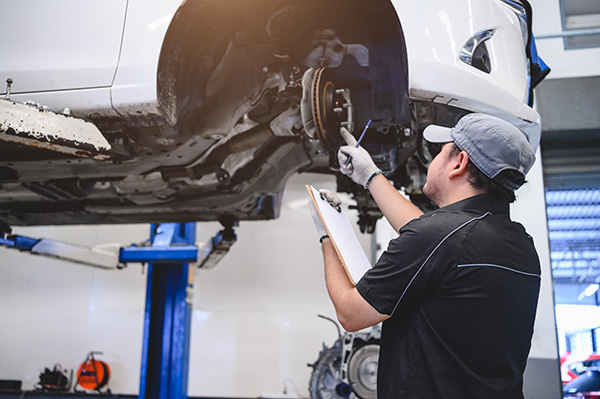
Have you noticed a high-pitched squealing noise when you apply the brakes? This is a common issue, and while it might be annoying, it’s also a sign that something’s up with your braking system. The squeal could be harmless in some cases, but it could indicate a more serious problem that needs attention in others. So, why exactly do brakes make that noise, and when should you be concerned?
Worn Brake Pads
One of the most frequent reasons for brake squealing is worn-out brake pads. Brake pads are designed with a wear indicator, a small metal tab that rubs against the brake rotor when the pad material is low. This contact creates that unmistakable squealing sound, acting as an alert that it's time to replace your brake pads.
Ignoring this noise can lead to more severe damage, as the brake pad could wear down to the metal backing, causing damage to the rotors. If you hear consistent squealing when you brake, it’s best to get your pads checked before you face a costly repair.
Brake Dust and Debris Build-up
Brake systems generate heat and friction, which can cause brake dust and debris to accumulate over time. When brake pads wear down, this dust can get caught between the pads and rotors, leading to that familiar squealing noise. It might not be a serious issue, but the build-up can affect braking performance.
A simple cleaning of the brake components can often resolve this, but it could point to a more significant issue if the noise persists. Regular brake inspections help prevent dust accumulation from becoming a larger problem.
Moisture and Rust
Have you ever noticed your brakes squealing in the morning after a rainy night or during cold weather? Moisture can temporarily cause brakes to squeal. When your car sits in wet or humid conditions, a thin layer of rust may form on the surface of the brake rotors. As soon as you hit the brakes, the pads will scrape off the rust, resulting in a squeal. The noise often disappears after a few brake applications once the rust wears off.
This kind of squeal is usually harmless. However, if the noise lingers for longer periods, you may want to have a technician take a closer look to ensure moisture hasn’t caused any lasting damage.
Glazed Brake Pads or Rotors
When brake pads or rotors become too hot due to excessive or aggressive braking, they can become “glazed.” Glazing happens when the surface of the pads or rotors gets shiny and hard, reducing their effectiveness. This can lead to poor braking performance and an annoying squealing sound.
Driving in stop-and-go traffic or braking hard frequently can cause glazing. If your brakes are squealing after heavy use, it could indicate that your pads and rotors are glazed and may need to be resurfaced or replaced.
Cheap or Low-Quality Brake Pads
Low-quality brake pads can make squealing noises because they are often made from harder, less effective materials. While they may save you some money upfront, they are more likely to produce noise and wear out faster. Investing in high-quality brake pads can reduce squealing and improve your vehicle's overall performance.
Loose or Misaligned Components
Your brakes consist of several components that must work together properly to stop your car. If any of these parts become loose or misaligned, they can cause unusual noises, including squealing. For example, if a caliper or brake pad shim isn’t correctly installed, it could vibrate against other components and create a high-pitched noise.
In these cases, you’ll want to have a professional inspect the brake system to ensure all parts are aligned and secure. Misaligned brakes can lead to uneven wear, which might result in more significant repairs later.
What Should You Do About Squealing Brakes?
If your brakes are squealing, don't ignore the noise. While it might seem like a minor inconvenience, the sound could be a sign of a bigger issue that affects your vehicle’s safety. Here’s a quick checklist of steps to take when you hear your brakes squealing:
- Check for wear: Inspect the brake pads to see if they’re worn down and need replacement.
- Clean the brakes: Sometimes, a build-up of brake dust or debris can cause noise, so a thorough cleaning might resolve the issue.
- Monitor for moisture: If the squealing happens after rain or in cold conditions, it may disappear once the brakes warm up.
- Consult a professional: If the noise persists or if you’re unsure about the cause, have a brake specialist at Extreme Auto Repair inspect your system.
If your brakes are making strange noises, it’s time for an inspection. At Extreme Auto Repair, we’ll check your entire braking system and provide top-quality service to keep you driving safely. Book an appointment today!